Beijing Jiaotong University Successfully Hosted the International Conference of LISS2020 and IEIS2020 via Video Conference
On July 26-27, 2020, with the approval of Ministry of Education in PR China, the 10th International Conference of Logistics, Informatization and Service Science (LISS 2020) and 7th International Conference on Industrial Economics Systems and Industrial Security Engineering (IEIS 2020) was successfully held by International Research Center of Information Management Theory and Technology of Beijing Jiaotong University (ICIR), National Academy of Economics and Security of Beijing Jiaotong University (NAES), and School of Economics and Management, Beijing Jiaotong University (SEM, BJTU), co-hosted by Budapest University of Technology and Economics in Hungary.
Due to the Covid-19 pandemic, the on-site conference was cancelled in Budapest, Hungary and Beijing, China, and was replaced with online conference.
The conference was supported by IEEE SMC, National Natural Science Foundation, Wang Kuancheng Education Foundation, China Europe Sustainable Engineering Doctoral Institute, Beijing Logistics Informatization Research Base, Beijing key Laboratory of Logistics Management and Technology and Beijing Industrial Security Research Base.
The opening ceremony of the conference was held online at 8pm Beijing time on July 26.
Professor GUAN Zhongliang, Vice President of Beijing Jiaotong University made the welcome address to the distinguished guests and participants of the Conference and wished the conference a success.
Professor Gábor Bohács, on behalf of the organizer, welcomed the academics and scholars participating in the meeting and introduced their research of Budapest University of Technology and Economics in Hungary. Professor ZHANG Runtong of ICIR, reported on behalf of the organizing committee regarding the Conference background.
The opening ceremony of the Conference was presided over by Professor HUA Guowei, Vice Dean of School of Economics and Management, Beijing Jiaotong University.
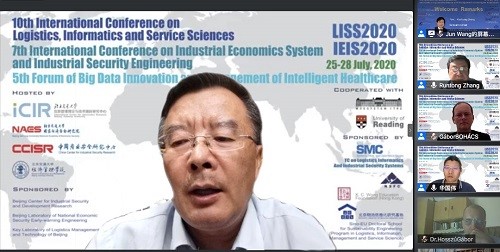
Welcome Address by Vice President GUAN Zhongliang
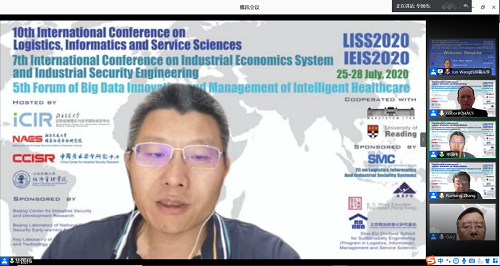
Professor HUA Guowei presided over the opening ceremony.
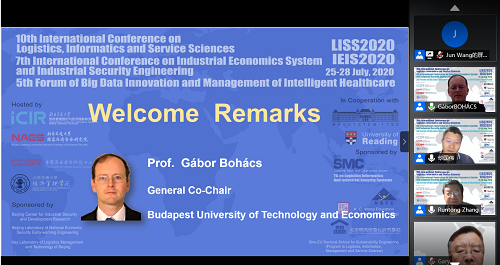
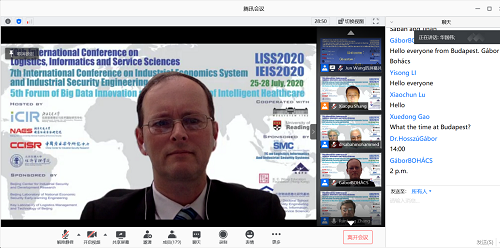
Professor Gábor Bohács delivered a welcome speech
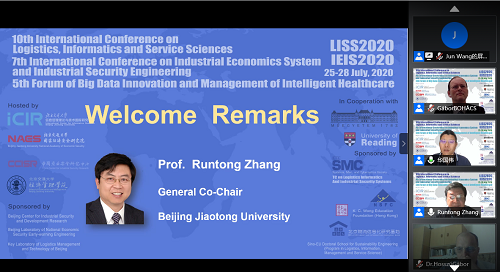
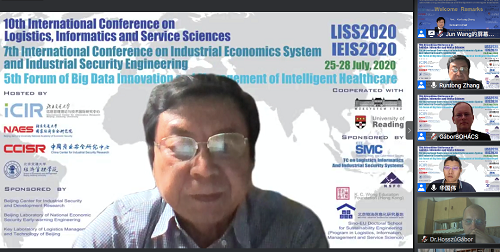
Professor ZHANG Runtong introduced the organizing of the conference
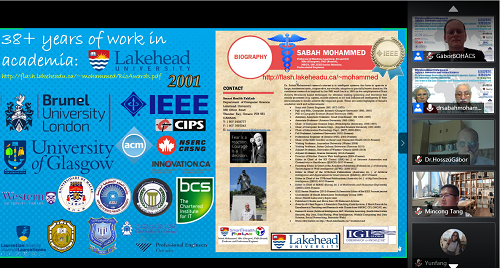
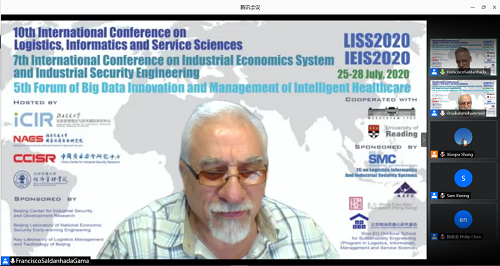
Professor Sabah Mohammed gave a keynote speech
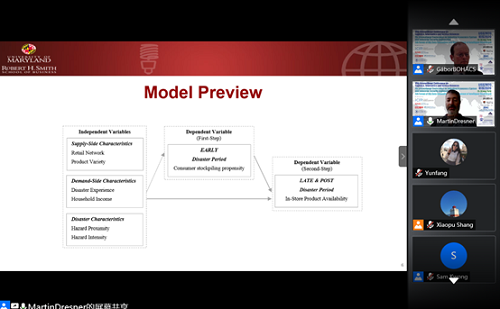
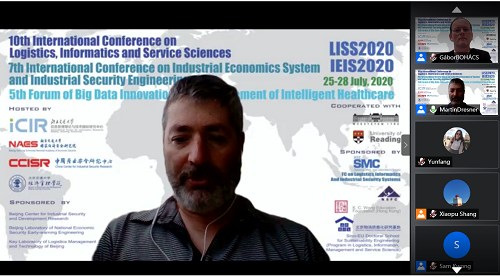
Professor Martin Dresner gave a keynote speech
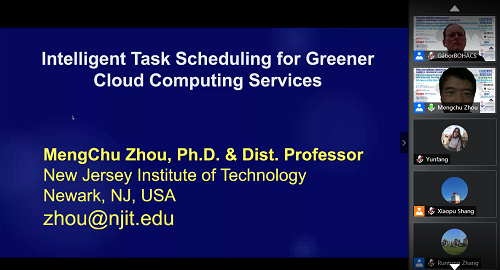
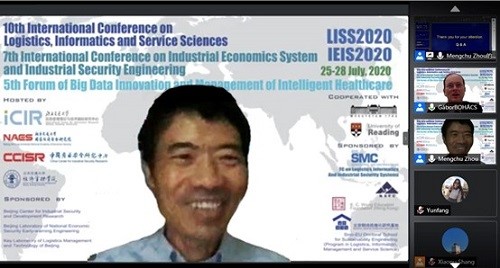
Professor Mengchu ZHU gave a keynote speech
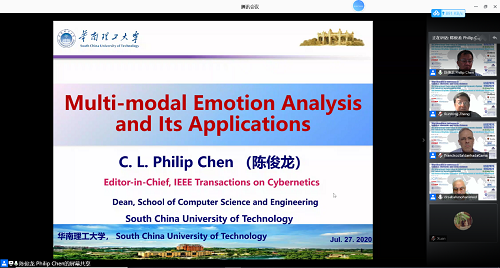
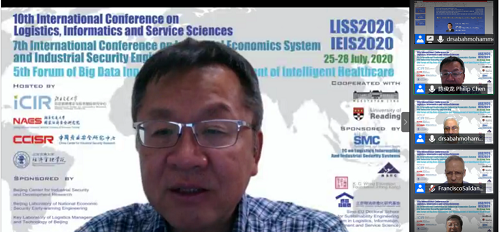
Professor C. L. Philip CHEN gave a keynote speech
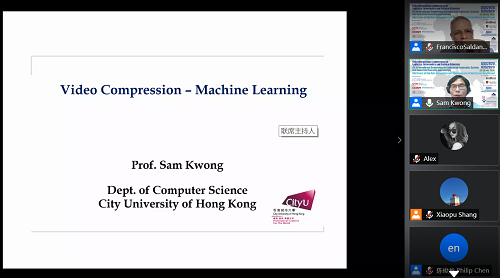
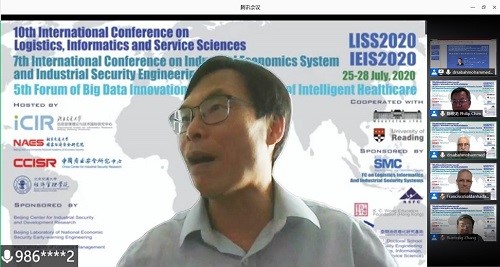
Professor Tak Wu Sam Kwong gave a keynote speech
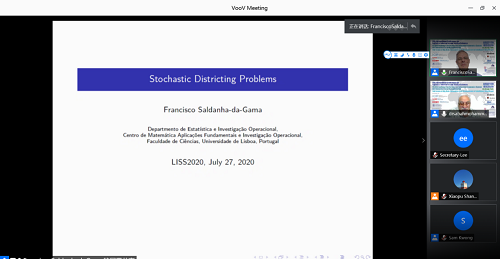
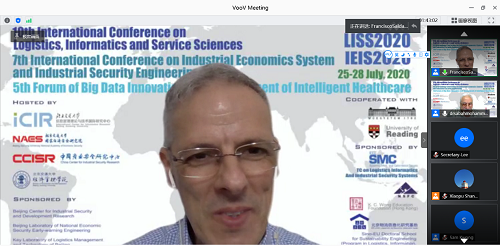
Professor Francisco Saldanha da Gama gave a keynote speech
Six renowned academics in logistics, information technology, service science, industrial security and other related fields were invited to deliver keynote speeches.
Professor Sabah Mohammed of Lakehead University in Canada made a speech entitled "Securing Internet of Medical Things", which put forward the concept of medical Internet of things and clarified the key technologies. Professor Martin Dresner of the University of Maryland in the United States delivered a speech entitled "Pre-Hurricane Consumer Stockpiling and Post-Hurricane Product Availability: Empirical Evidence from Natural Experiments", which took the hurricane disaster as the background and studied the changes of supply and demand of material storage before and after emergencies.
Professor IEEE Fellow and Professor Mengchu Zhou of New Jersey Institute of Technology spoke on the topic of "Intelligent Task Prediction and Scheduling for Greener Cloud Computing Services". Aiming at green cloud computing services, the report proposes a method of intelligent optimization and machine learning, combined with the actual geographical distribution, to study the dynamic scheduling of tasks and the dynamic allocation of resources.
IEEE Fellow and Professor C. L. Philip Chen of the University of Macau addressed on the topic of "Multi-modal Emotion Analysis and its Applications", which deeply discussed the technology and application scenarios of multimodal emotion analysis in the field of artificial intelligence.; IEEE Fellow and Professor Tak Wu Sam Kwong of City University of Hong Kong talked about "Intelligent Video Coding by Data-driven Techniques and Learning Models". A method based on machine learning and game theory was proposed to realize the optimization of video data coding.
Professor Francisco Saldanha da Gama of the University of Lisbon shared his insights on "A Modeling Framework for Territory Design under Stochastic Demand", which proposed a two-stage mixed integer stochastic programming model to minimize the expected cost.
Eleven parallel sessions were held for paper presentations during the online conference from July 26 to 27. Later on, academics, scholars and speakers were encouraged to exchange ideas and share their expertise during the discussions and the sessions were well organized and productive.
LISS 2020 and IEIS 2020 received a total of 377 academic papers from 10 countries and regions around the world. The proceedings of the two conferences were supported and published by Springer Nature (Springer) and submitted to the CPCI-S and EI databases.
Brief introduction of the meeting:
LISS Conference is jointly initiated by ICIR of Beijing Jiaotong University, University of Reading in the UK, Pennsylvania State University and the University of California, Berkeley in the United States, to bring together experts, scholars and insiders in logistics, information technology, service science and other related fields to discuss academic issues, seize future development opportunities and discipline development trends, and exchange the latest research achievements and academic ideas.
The IEIS Conference is jointly initiated by CCISR of Beijing Jiaotong University, ICIR of Beijing Jiaotong University and the University of California, Berkeley, to bring together experts, scholars and business people from all over the world, around the national strategic needs and discipline frontiers in the field of industrial economy and industrial security, and to use scientific ideas, methods and technologies to study and discuss academic issues in the field of industrial economy and industrial security.
























